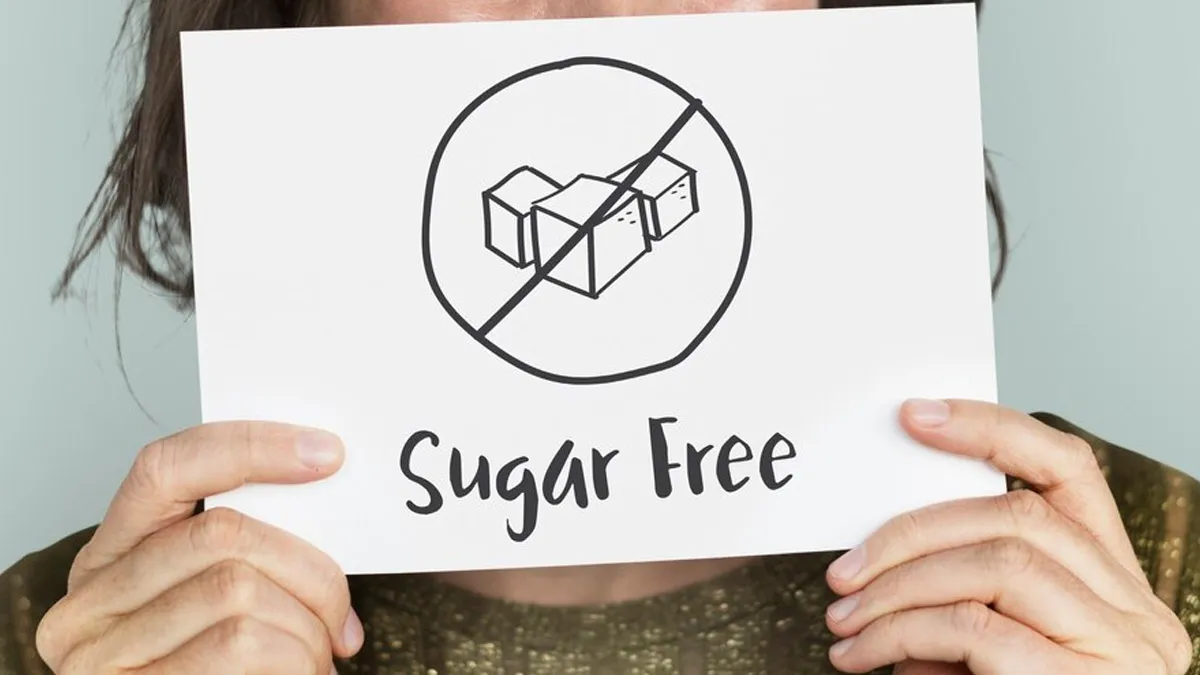
In our pursuit of healthier lifestyles, sugar-free labels have become beacons of hope, promising guilt-free indulgence and a path to better health. From sodas to cookies, a seemingly endless array of sugar-free products lines our supermarket shelves. But beneath the appealing facade, are these alternatives truly the healthier choice? Or are we, as consumers, falling victim to a sweet deception? Well, to find out the answers, we spoke to our expert, Dr Bhumesh Tyagi, Consultant, General Medicine and Physician, Shardacare, Health City, Noida and here is everything he shared with us.
Table of Content:-
“The appeal of sugar-free cannot be denied. As awareness of the negative impact of sugar continues to grow, from weight gain and higher risk of type 2 diabetes to dental issues and cardiovascular complications, abandoning the sweet stuff seems like a no-brainer. Products labeled as sugar-free tend to be lower in calories and are popular among those who are diabetes management or simply wishing to cut down on the sugar,” Dr Tyagi explained.
What's Hidden in Sugar-Free?
The key to most sugar-free products is their use of artificial sweeteners, or non-nutritive sweeteners (NNS). These man-made or extremely processed chemicals deliver the sweetness without calories or the glycemic burden of conventional sugar. Popular artificial sweeteners are:
- Aspartame: Used in diet soft drinks, sugar-free chewing gum, and desserts.
- Saccharin: An ancient artificial sweetener, found in diet beverages and sugar substitutes.
- Sucralose: Frequently sold as Splenda, appearing in many sugar-free foods from baked goods to dairy products.
- Stevia: Made from the stevia plant, it's a natural option, although highly processed varieties abound.
- Erythritol and Xylitol: Both sugar alcohols, frequently used in sugar-free sweets and chewing gum, and sometimes leave a cooling aftertaste.
Also Read: Know Your Sip: Hojicha vs Matcha: Which is better for your Health?

Potential Downsides of Artificial Sweeteners
Whereas NNS provide a temporary respite from sugar calories, new studies are pointing to likely negative aspects that deserve greater scrutiny:
1. Changed Gut Microbiome
New studies indicate that artificial sweeteners might have a detrimental effect on our gut bacteria, an important factor in digestion, immunity, and even mood. An unbalanced gut microbiome can be the cause of many health problems.
2. Metabolic Disturbance
Despite common perception, research has shown that artificial sweeteners can still affect insulin function and glucose metabolism, potentially resulting in higher sugar cravings and a greater long-term risk of metabolic syndrome.
3. Weight Management Paradox
Though calorie-free, NNS may not be the weight-loss wonder they're marketed to be. There are a few theories that propose that they can manipulate the body into anticipating calories, creating greater hunger and compensatory consumption after the fact.

4. Taste Bud Reset
Repetitive use of intensely sweet artificial sweeteners may desensitise our taste buds, rendering naturally sweet food such as fruits less desirable. This can create a dependence on highly processed sweet foods.
5. Digestive Issues
Sugar alcohols xylitol and erythritol can lead to digestive upset, such as bloating, gas, and diarrhea, particularly when consumed in excess.
The Verdict
So, are sugar-free food products actually healthy? According to De Tyagi, the response, as it usually is in nutrition, is complicated.
For those with certain medical conditions such as diabetes, sugar-free foods can be an effective tool for maintaining blood sugar levels. But for the average person, a blanket recommendation of sugar-free foods as automatically "healthy" may be inaccurate.
Instead of trading one highly processed food for another, try these steps toward real health and wellness:
- Prioritise whole foods
- Retrain your taste buds
- Read abels carefully
- Practice mindful eating
- Hydrate
Ultimately, true wellness and health come not in a sugar-free designation, but in an integrated approach to nutrition that involves whole, unprocessed foods and a deliberate attempt at knowledge of what we ingest. Though artificial sweeteners may be a convenient fix, that true wellness comes from accepting the sweetness of life, responsibly and in proportion.
Also watch this video
How we keep this article up to date:
We work with experts and keep a close eye on the latest in health and wellness. Whenever there is a new research or helpful information, we update our articles with accurate and useful advice.
Current Version